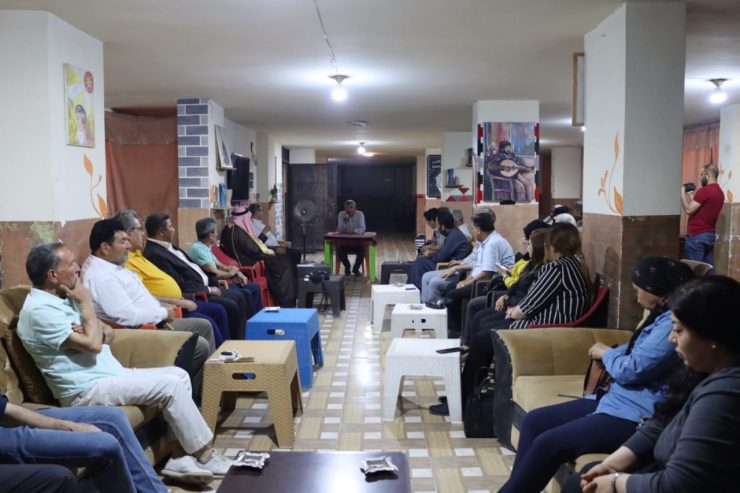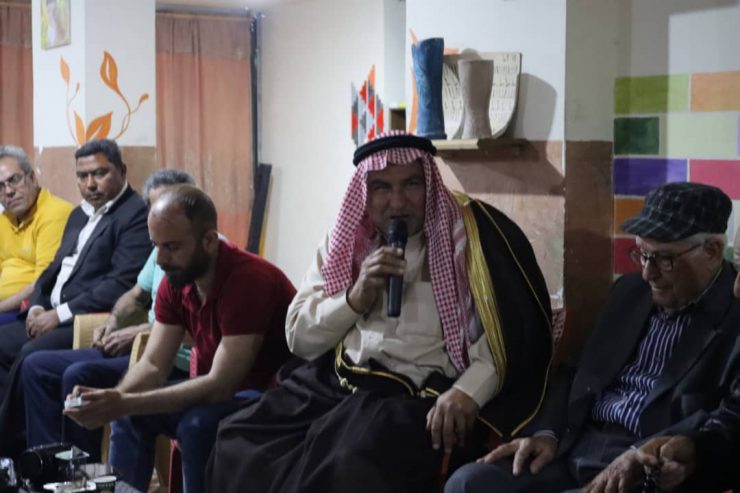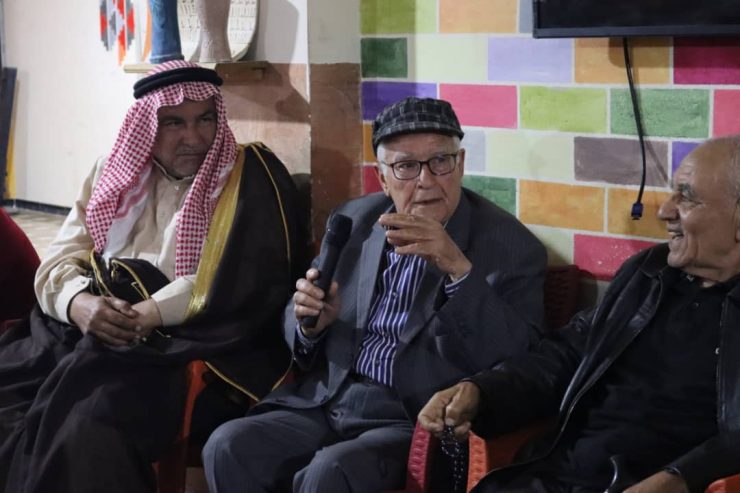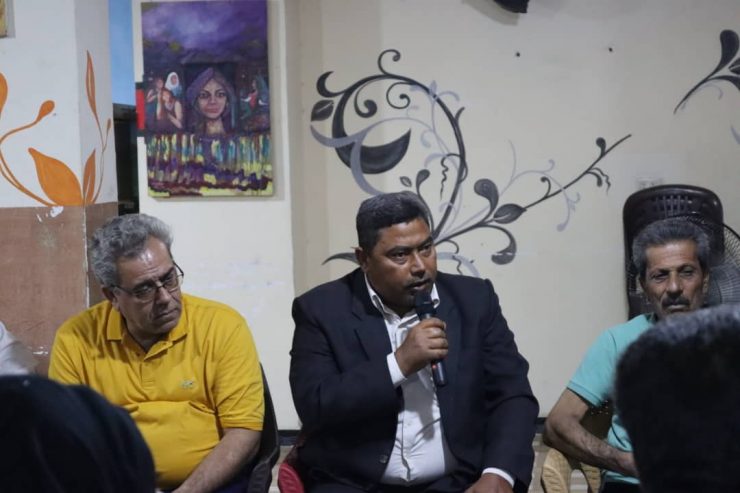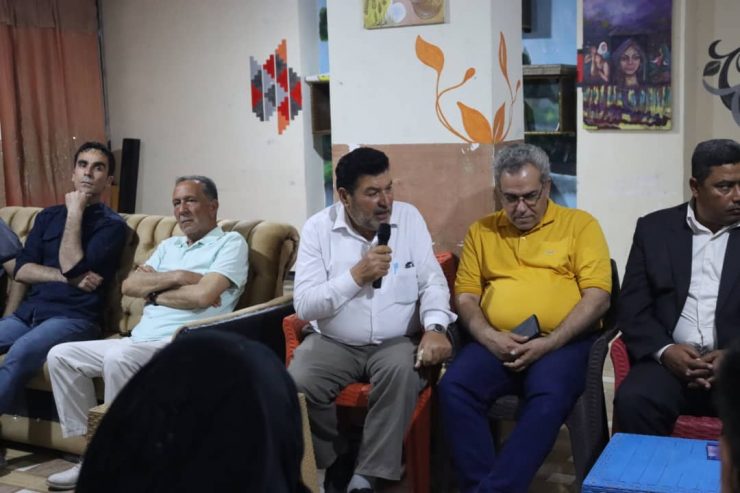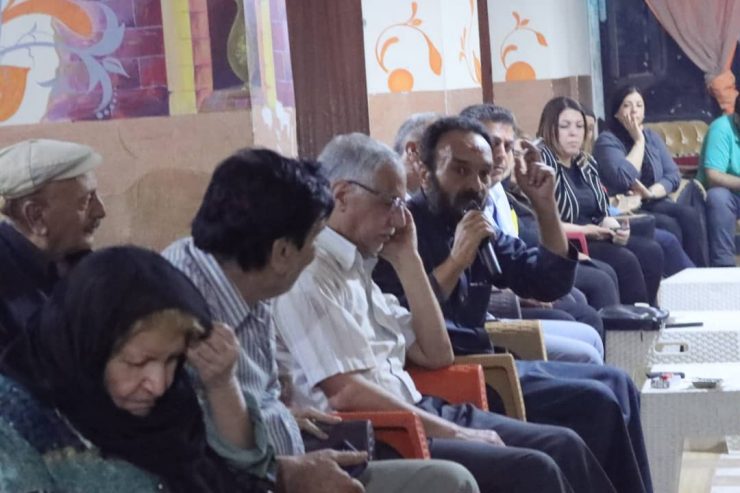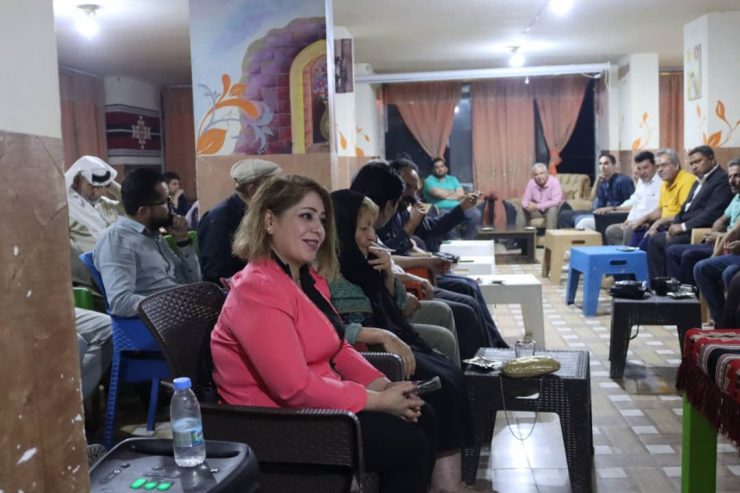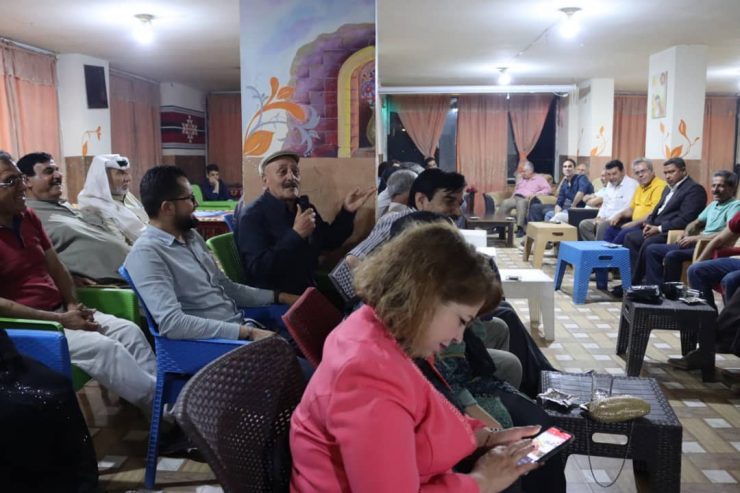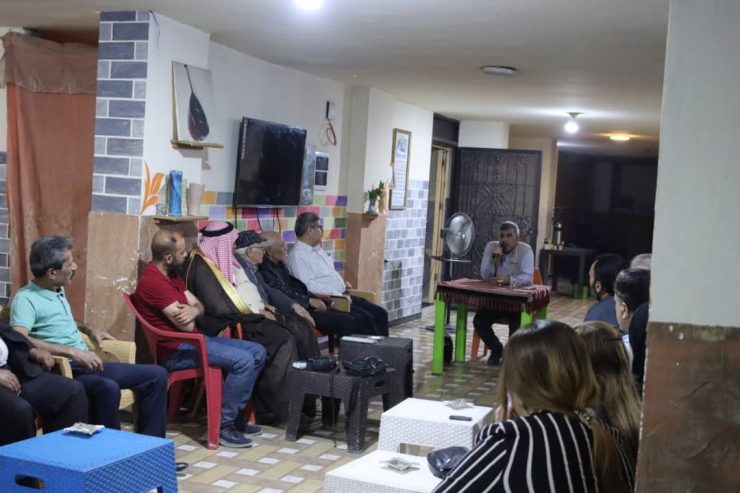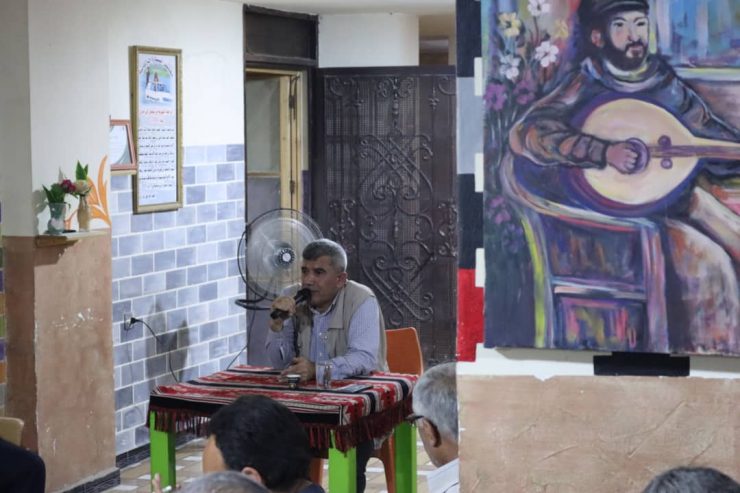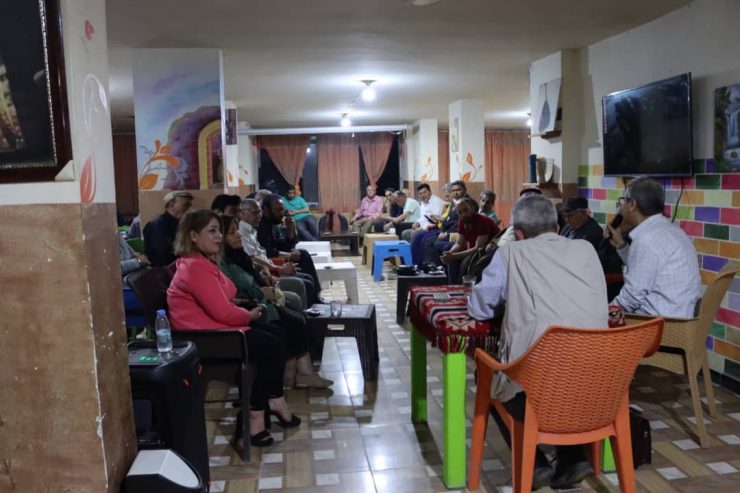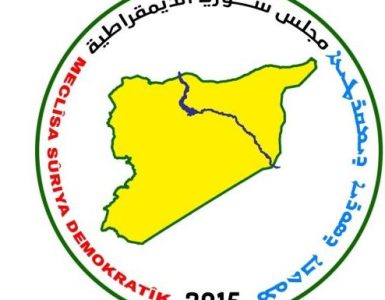Several cultural and tribal figures from Raqqa, Tabqa, and Kobani met with a member of the Executive Body of the Syrian Democratic Council, Hassan Muhammad Ali, on Thursday evening, at Fushat Hewar Hall in Raqqa.
Mr. Hassan Muhammad Ali dealt with the political reality in the Middle East region, where he pointed out that the conflicts arose among the dominant international regimes and powers as well as the regional ones and affected several aspects, including economic, political and military ones, and those powers made alliances in various regions such as the case of the Middle East, so these countries affected other alliances such as China and Russia.
The Co-chair of the Relations Bureau of the Syrian Democratic Council, Hassan Muhammad Ali, also spoke about the Syrian file, explaining the Arab goals of normalization with the Damascus government, following the failure of the opposition to achieve anything and the latter’s desire to keep Syria divided, and the Arabs’ endeavor to create a position against Iran’s exclusivity in this file, which made the Arab countries to move and agree for providing a humanitarian support first, then economic and political supports.
Muhammad Ali continued that the Syrian Democratic Council does not stand against normalization processes, provided that they will not be as an obstacle to the democratic political transition of Syria, expecting that many steps will be hindered if the UN Resolution 2254 is not taken into account.
During his talk, the lecturer touched on the paths that the Autonomous Administration of northeastern Syria is working on, which are:
1- The Syrian Democratic Forces are the partner of the international coalition in the fight against terrorism.
2- The model of the Autonomous Administration is not a limited national model, and there is a participation by all components in the region.
3- International relations with the West Countries regarding the fight against terrorism have made friendships and relations with peoples and democratic powers in many countries.
4- The Autonomous Administration has shown messages of goodwill by accepting the Syrian refugees, and it is capable of making politics and making developments, and that the regions of northeastern Syria will be the decisive factor regarding the process of democratic transition of the future Syria.
Before beginning discussions, Muhammad Ali stressed that the Autonomous Administration agrees with all political and societal powers and this Administration seeks to form democratic powers for the sake of the national political dialogue and it works to develop governance, combat corruption and chaos, and create an administrative model to be emulated, in which it requires the active participation by intellectuals and pen holders, as well as political parties and clans that will contribute to the democratic political transition and develop resolutions for all the problems that the region suffers from.
The discussions also included the consequences of normalization processes and their impact on the Autonomous Administration areas, the role and duties of the Autonomous Administration in political work, community service, and raising the level of the active participation.
The civil activist Osamah Al-Khalaf raised a number of questions about the movements of regional countries, the visits of representatives of the Autonomous Administration to the Arab countries, and the visits of American officials to the region.
On the role of the clans, Sheikh Hamid Al-Faraj, the sheikh of Al-Waldah clan in Tabqa, stressed the support of the sheikhs and clans of the region for this project, and the involvement of the clansmen with the Syrian Democratic Forces from the beginning to the liberation of the regions.
In the same context, the academic Abd Al-Rahman Al-Hamadah pointed out the importance of communication and dialogues among Syrians and bringing points of view closer to achieve understandings until reaching a Syrian resolution.
In her turn, the writer Fawziyah Al-Mareai wondered about the outcomes of the Turkish presidential elections and their various effects on the Syrian file and the region in the event of Erdogan’s victory.
As for Dr. Hassan Al-Shawakh, his participation in the dialogue was about the consequences of the impact of the Russian-Ukrainian war on the Syrian file in the future.
It is noteworthy that Fushat Hewar (The Space for Dialogue) is a cultural, intellectual, dialogue forum that provides a safe and free space for the community and includes about two hundred cultural figures including the elite of writers, opinion holders and pioneers of the literary movement.


